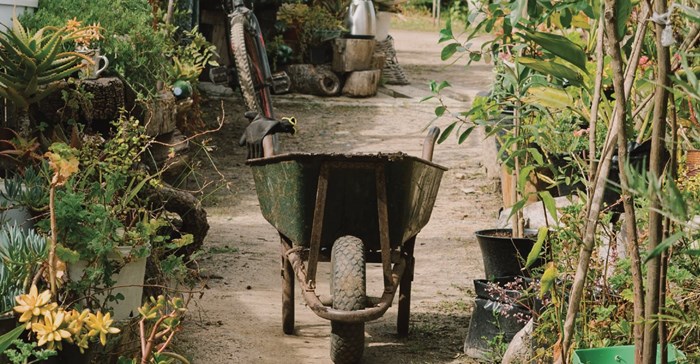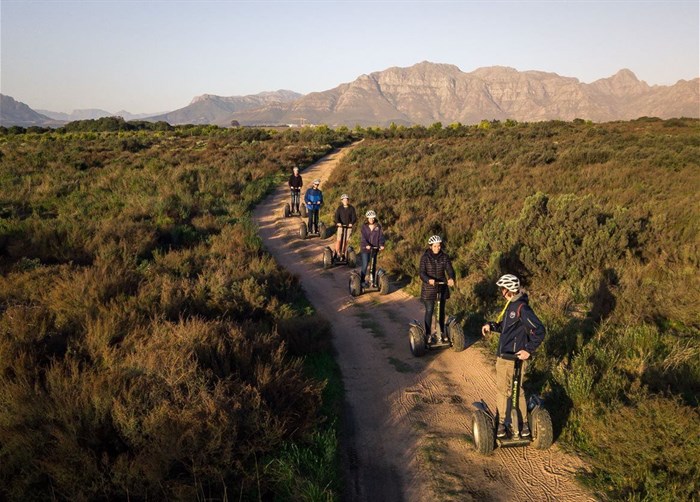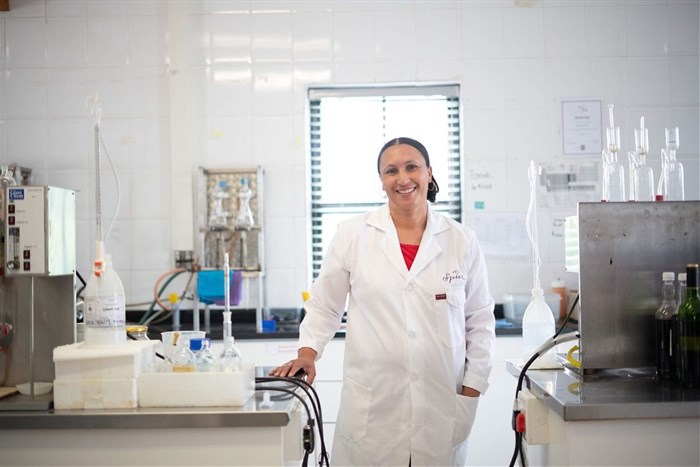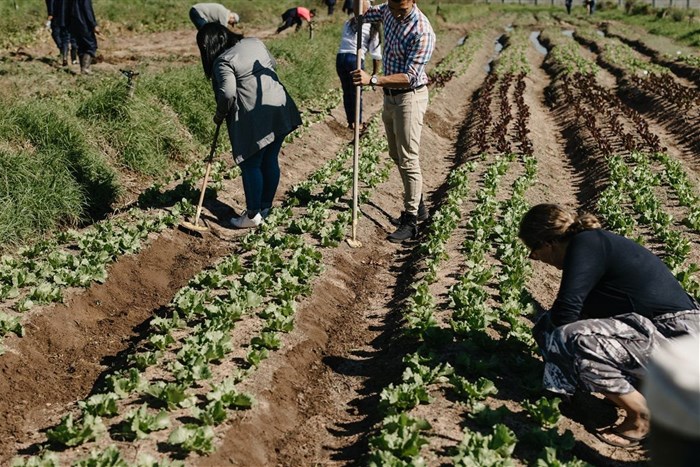
Top stories






RetailSuperga’s century of style: Celebrating 100 years of the iconic 2750 classic
Crick Group 7 Apr 2025
More news

Marketing & Media
#BehindtheSelfie: Adriana Woolridge, marketing manager at Homemation
Karabo Ledwaba 1 day















Spier Wine Farm is one of South Africa's oldest wine farms, dating back to 1692, and features a rich cultural and architectural heritage.
One of the highlights of my experience was engaging in a range of 'Growing for Good' activities, each tailored to promote environmental sustainability and community well-being.
In the Food Garden, under the guidance of Spier Wine Farm's agroecologist Megan McCarthy, I participated in Self-Harvesting, where the use of regenerative techniques to cultivate a variety of fruits, herbs, and vegetables was demonstrated. "This hands-on approach not only connects people with the source of their food," McCarthy explained, "but also educates them on the benefits of sustainable agriculture."

The Segway Tour was an exciting way to explore the extensive property. Gliding through the indigenous River Garden and past the eco-friendly wastewater recycling plant, I gained insights into how Spier integrates ecological conservation into its everyday operations, ensuring that every aspect of the farm contributes to a greener planet.
One of the cornerstones of the 'Growing for Good' initiative is its emphasis on entrepreneurship. Spier transforms its employees and local residents into business owners, providing support from the inception to the operation of their ventures.
The Enterprise Development session opened my eyes to how Spier supports local entrepreneurs. From providing mentorship and financial support to offering equipment and facilities, Spier helps launch and sustain small businesses that are vital to the local economy. During this session, I learned about several success stories, such as Klein Begin, a laundry service, and Primo Vino, which creatively repackages Spier wines for different markets.

I also met Merecia Smith, a former Spier employee who has launched WAS Laboratory, the Western Cape's first black-owned wine analysis laboratory. Spier supports WAS Laboratory by providing accounting and administrative services, allowing Smith to focus on her lab work.
Furthermore, I was especially impressed by the story of Noviwe “Sweetness” Lubisi, who started as a cleaner and rose through the ranks to manage the Spier staff restaurant, now an independent venture that caters to a large daily workforce. "Starting at Spier as a cleaner and progressing to managing my own restaurant has been an incredible journey of growth and learning. The support and opportunities provided here have empowered me to take ownership of my future and contribute meaningfully to our community."
Finally, the Picnic Lunch was an opportunity to taste the fresh produce directly from the garden. Settling down on a blanket, surrounded by the beauty of the farm, the meal featured the freshest produce directly from the garden I had just visited, beautifully showcasing the cycle of growth and sustainability.
Beyond the activities I participated in, Spier hosts various other programmes aimed at sustainable and community-focused development. The Living Soils Community Learning Farm and the Spier Nursery are pivotal in teaching sustainable farming and plant growth techniques, crucial for environmental stewardship.
Launched in March 2019, the Living Soils Community Learning Farm, a collaborative effort by Woolworths, Spier, and the Sustainability Institute, has marked three years of progress in food production, skills development for young farmers, and enhancing community food security.

In this period, the project cultivated over 1.2 hectares, producing 15.9 tonnes of vegetables and advancing its mission to empower unemployed youth and women in agriculture. Training programmes have uplifted interns to managerial roles and contributed to local food supply chains, ensuring children and vulnerable communities receive nutritious meals.
The Regenerative Farm Tour offers an up-close look at holistic farming practices that maintain healthy soil and ecosystems. Meanwhile, the Water Sustainability Tour showcases how Spier's innovative water management practices minimise its environmental footprint by recycling and reusing wastewater.
Furthermore, cultural integration is evident in Spier’s sustainability efforts through initiatives like the Light Art Exhibition, which uses the farm as a canvas to display thought-provoking installations that highlight the intersection of art, nature, and technology.
Spier Wine Farm’s 'Growing for Good' initiatives go beyond corporate responsibility; they also represent a business philosophy that nurtures the land, empowers people, and builds a sustainable future. My visit not only provided me with a deeper appreciation of the impact of these programmes but also left me inspired by the potential of responsible business practices to drive real change.
Through their diverse range of activities, Spier is an example of how businesses can integrate sustainability into their core operations while fostering economic growth and community development. It’s a model that other enterprises would do well to follow, proving that growth can do, and be good.
For more information, visit Spier Wine Farm's 'Growing for Good' initiative.